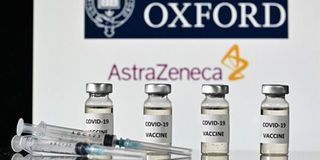Debunk safety fears in vaccine rollout

After assessing the quality, safety and efficacy of AstraZeneca/ Oxford Covid-19 vaccine last month, the World Health Organisation listed two versions for emergency use, giving the greenlight for the vaccines to be rolled out globally through the Covax facility.
The vaccines are produced by AstraZeneca-SKBio and the Serum Institute of India.
Uganda is expected to receive 18 million doses to assist in the vaccination of the people at risk and the first batch [864,000 doses] arrived in the country on Friday and plans are underway to vaccinate health workers, teachers, persons above 50 years of age and then people with underlying health conditions will follow.
Security personnel and other categories considered to be at risk will also be prioritised.
As government rolls out vaccination on March 10, there are, however, lingering questions about the gaps in the process amid mistrust and suspicion; logistical challenges and fears of corruption in a chaotic and unfair rollout.
The distortions about the vaccines should be explained before it’s too late. People should be told that the vaccines don’t alter human cells, but merely teach your body’s immune system to recognise and fight the infection they have been designed to protect against.
The President should as a matter of urgency address the nation to dispel the distortions about the safety of the vaccines. Our view is that if handled well and without greed or slackness, inoculation alongside adherence to the SOPs, can help us cut infections, reduce risk of dying and resuscitate our economy.
To assure the country and accelerate the vaccine rollout, we propose that Health minister Ruth Aceng and team take the first jab on March 10. In Kenya, Patrick Amoth, the director general at the ministry of health, received the first shot on Friday.
The ministry should buy space in newspaper and other media outlets to explain the criteria Cabinet used to select the first beneficiaries of the vaccines and why the targeted population was reduced from 60 per cent to only 49.6 per cent in a country of more than 45 million people.
Similarly, the requirement for national IDs and passports in the planned vaccination exercise should be dropped.
There is one irrefutable reason why some Ugandans are struggling to get National IDs: the bureaucracy and unnecessary inefficiencies in the system that have refused to go away even after efforts to decentralise services of the National Identification and Registration Authority.
There are glaring logistical challenges as the country prepares to vaccinate health workers and other categories at risk. For instance, vaccinations starts in three days but some health facilities lack crucial medical sundries. March 10 is not cast in stone, if we are not ready, let’s reorganise ourselves and fix gaps in the vaccine rollout.




